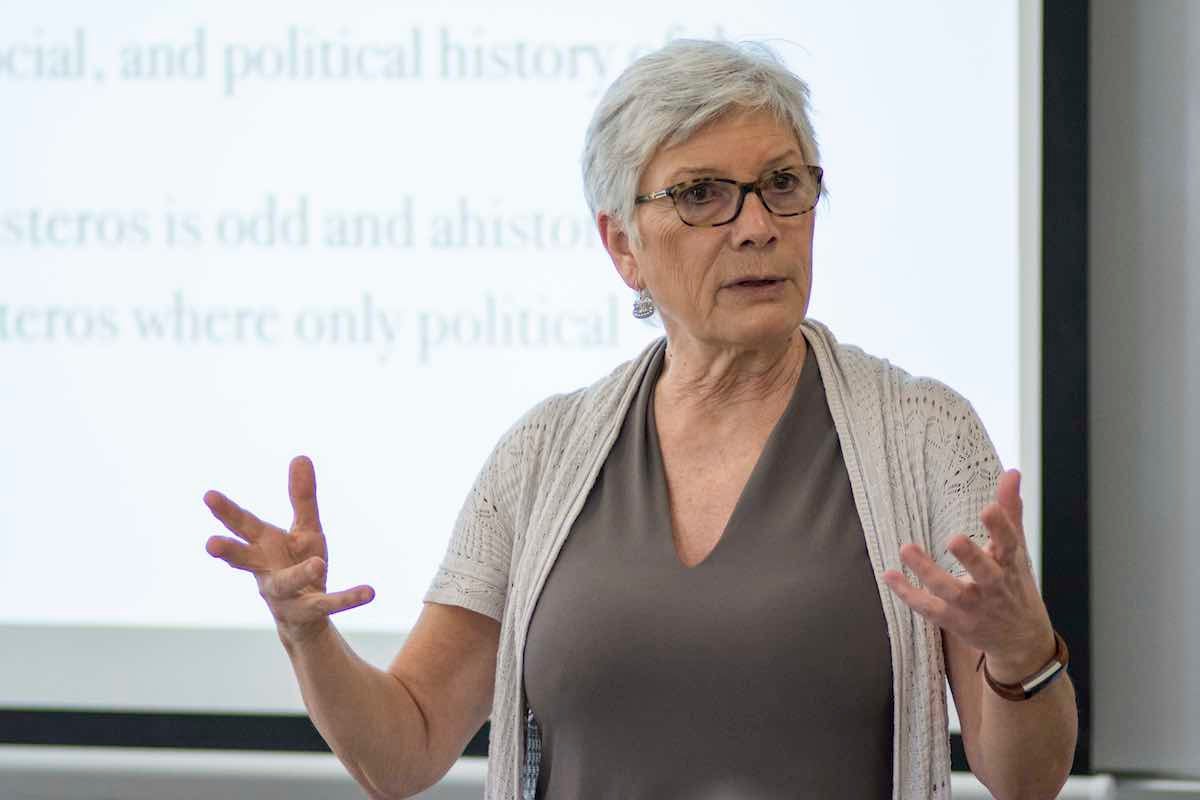KINGSTON, R.I. – June 5, 2023 – Medieval scholar Joëlle Rollo-Koster may have reached more students in the last three weeks than in the more than 26 years she’s been teaching at the University of Rhode Island. It helps to have a viral video.
The lesson is about the early 15th century “papal predicament” that saw three popes claim the role of supreme spiritual authority for Catholics worldwide. The animated video, “Pope vs. Pope vs. Pope,” has already had nearly 550,000 views since being made public about three weeks ago.
Rollo-Koster collaborated on the video with TED-Ed, the youth and education initiative started by the creators of TED Talks. Launched in 2012, TED-Ed aims to spark ideas and support learning through its online platform that serves millions of teachers and students around the world every week, according to its website.
The website offers a growing library of original animated videos—such as the one created with Rollo-Koster. Rollo-Koster, an expert on the papacy who specializes in the Middle Ages, provided the words and ideas for the video, working with professional animators from TED-Ed.
“The finished product is beautiful,” said Rollo-Koster, a professor of medieval history at URI. “It looks like an animated medieval illumination. We are at over a half-million views and some 18,000 ‘thumbs up’ with plenty of positive comments.”
Representatives from TED-Ed contacted her in November 2021, Rollo-Koster said, knowing of her expertise in the period and that she is one of two editors overseeing the upcoming three-volume “Cambridge History of the Papacy,” which is being published by Cambridge University Press. After agreeing on a topic for the video with TED-Ed, she started writing a script.
“We went through several iterations of the script, trying to find a balance between academic and historical exactitude and easiness of understanding,” she said. “It is difficult to write popular science where you need to find a balance between academic rigor and intellectual accessibility.”
The story of the three popes is a footnote to the Great Western Schism, when the papacy was contested by factions of cardinals in Rome and Avignon from 1378 until 1417. Attempting to end the dispute, cardinals representing both papal claimants met in 1409 at the Council of Pisa. But the council elected a new pope. His authority was not recognized by either of the sitting popes in Rome and Avignon—adding a third pope to the confusion. It wasn’t until 1417 and the election of Pope Martin V at the Council of Constance that the rift—and the reign of three popes—was ended.
Once the script was finished, it was reviewed by a fact-checker, who didn’t have access to the Vatican archives like Rollo-Koster has.
“It was a bit of an argument at times explaining that while Wikipedia does not mention something—like the plundering of the wine cellar during the conclave of 1379—it doesn’t mean it is inaccurate,” said Rollo-Koster, who’s most recent book covers The Great Western Schism. “I found plenty of traces in the Vatican archives.”
At just over six minutes, the finished video tells the tale of the three popes in an easy to follow, clever and, at times, humorous way that finds a perfect balance.
“This is church history so you need to be respectuous even if the topic leads to sarcasm,” she said. “Many people in the YouTube comments mention that they are Catholics and appreciate what we did. So, I think we found the right balance.”

